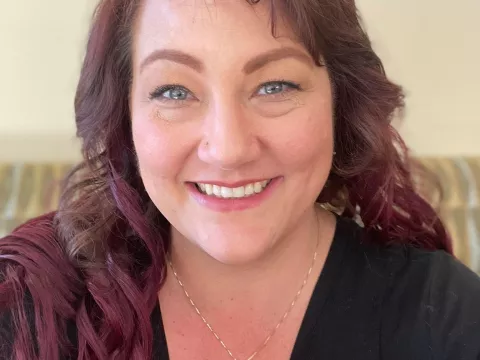- AdventHealth

For women, cervical cancer screenings are an extremely important part of maintaining whole health. In fact, cervical cancer screenings can prevent cervical cancer by detecting pre-cancerous cells and even early stage cancer when it is most treatable.
“Though many women are aware that cervical cancer screenings are recommended, many are understandably confused about when to get them,” said Pelumi Adedayo, MD, of AdventHealth Medical Group OB/GYN at Curtis Parkway. “This is because recommendations and guidelines have changed over the years.”
So, how can these guidelines affect your screening protocol?
We want to help you feel empowered about your health, so here’s a summary of the American Cancer Society’s new cervical cancer screening guidelines and how they may affect your prevention plan.
New Cervical Cancer Screening Guidelines
First, it’s important to point out that these cervical cancer screening guidelines are for women with an average risk and with a cervix. Women at high risk may have a more personalized screening schedule recommended by their doctor. And, for women with a history of a noncancer-related hysterectomy, these recommendations may not apply.
With the new guidelines, two of the most important updates are the type of screening test and what age to start. Instead of the once-a-year Pap smear, it’s now preferred to do a cervical cancer screening every 3 to 5 years based on age group.
The American Cancer Society now recommends a primary HPV test every 5 years. While this is not in widespread use, we recommend the following:
- A combined HPV and Pap test every 5 years for women older than 30, or
- A single pap test every 3 years for women ages 21 to 30.
And for those that have had the HPV vaccine, it’s still important to continue cervical cancer screenings as stated above.
Another important call-out to the new recommendations is for those age 65 and older. Now, those in this age group who have had normal cervical cancer screening results for the last 10 years don’t need further screening.
Why Cervical Cancer Screenings Are Important
Cervical cancer screenings are important because they provide the opportunity to identify pre-cancerous cells and remove them before they turn into cancer. They can also help find cancer in its early stages, when treatments are most successful.
The new recommendations shifted from the pap test to the primary HPV test because, according to the American Cancer Society, almost all cervical cancers are caused by a few specific strains of HPV (human papilloma virus).
While the pap smear looks for precancerous cells in the cervix, the primary HPV screening is better at identifying pre-cancerous cells infected by the types of HPV most likely to cause cervical cancer.
The hope is with widespread HPV vaccination and cervical cancer screening, cervical cancer could be eliminated for all women.
What to Expect at Your Cervical Cancer Screening
Whether you have the primary HPV screening test or the Pap smear screening, the process is relatively the same.
For both tests, you’ll be asked to wear a gown and lay down on an exam table. Then, your health care provider will use a small tool to gently scrape or brush the cervix and collect a small sample of cells. This sample can be used for both the Pap smear test and primary HPV test.
Your provider will give you your results after the lab processes your test(s). The timing can be dependent on what test you take and what lab is used to process it.
Schedule Your Cervical Cancer Screening Today
“When recommendations and guidelines change, it’s a good idea to speak to your women’s care provider,” said Dr. Adedayo. “This is a great time to talk about how the new guidelines may affect your personal cervical cancer screening plan.”
It’s also a good time to talk about other aspects of your whole health and prevention strategies. If you need help, you can find a trusted women’s care provider to guide your journey here.
Recent News
Local leaders, officials, and construction workers gathered today to commemorate a major milestone in the expansion underway at AdventHealth Daytona Beach: placing the final steel beam.
Dr. Jeffrey Keen, a board-certified orthopedic surgeon specializing in adult reconstruction, orthopedic surgery, robotic-assisted surgery, and sports medicine, has returned to AdventHealth Medical...
In recognition of National Donate Life Month, nearly 300 transplant patients and their families enjoyed AdventHealth’s 2025 transplant reunion.
According to the National Kidney Foundation, more than 101,000 people are currently on the organ transplant list in need of a new kidney. However, only about 17,000 transplants happen each year —...
The AdventHealth Board of Directors has appointed David Banks as the organization’s new president/CEO, effective immediately.
In life, Sophie Davis touched dozens of hearts. In passing, one of her organs could possibly save thousands of lives.
As the days get longer and the weather warms up, people are eager to get back to their favorite outdoor spring activities and sports. This transition from winter to spring often leads to an increased...
Marie Williams remembers being admitted to AdventHealth Parker on September 1, 2023, for colon resection surgery, but after that, things get hazy.
AdventHealth for Children is a nationally recognized children’s hospital and comprehensive care network caring for nearly 200,000 children annually.
Care Management Assistant, Meghan Bussard, was the recipient of the 2024 Outstanding Team Member Award for AdventHealth Shawnee Mission. Bussard is known across AdventHealth Shawnee Mission as a...
As the only physician in Central Florida certified to use the intestinal ultrasound, a cutting-edge diagnostic tool still new to the U.S., Dr. Jennifer Seminerio-Diehl is transforming the way IBD is...
Every March, we celebrate Women’s History Month and the countless contributions women have made across all parts of society, including health care. One such area where women have made remarkable...












